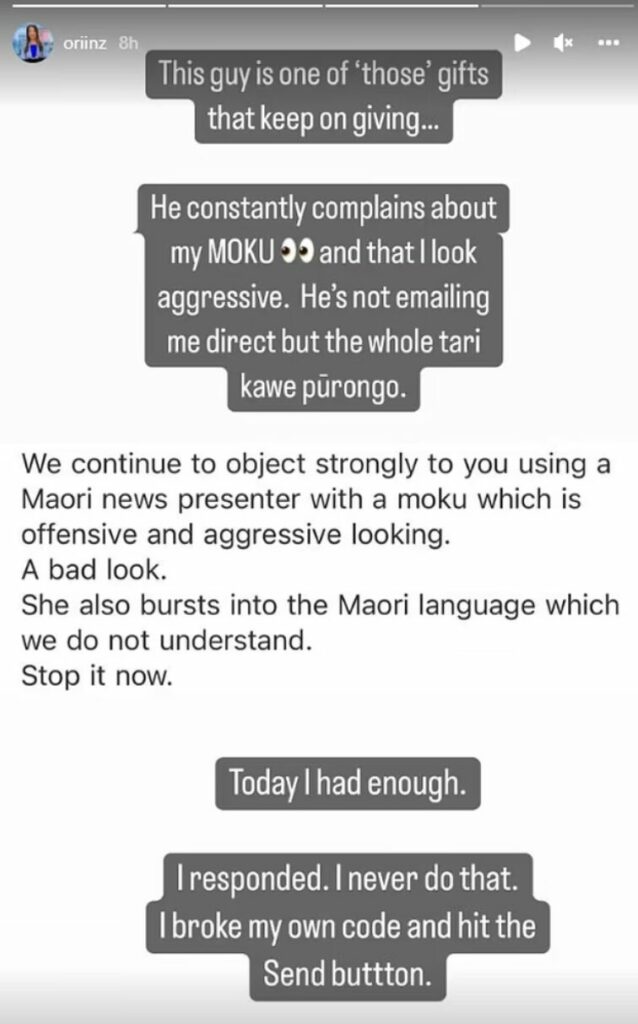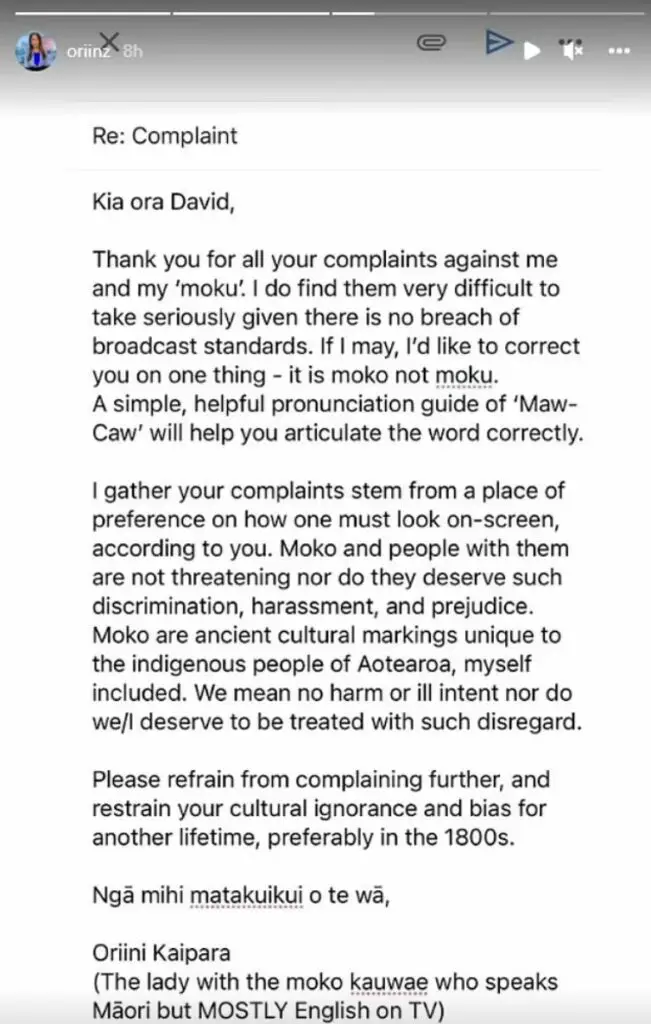No matter how appealing tattoos are for some people, having one on the face always ignites debates.
Oriini Kaipara, aged 41, broke new ground as a television personality, achieving a historic milestone by becoming the inaugural primetime TV news bulletin presenter with a moko kauae, a highly respected cultural tattoo traditionally worn by Māori women, upon joining New Zealand’s Newshub as a newsreader.
Moko kauae, or sacred female chin tattoo, is a cultural and spiritual expression of Māori identity and an assertion of political, cultural, social and spiritual aspirations as whānau, as hapū, as iwi, as Māori. These facial tattoos, traditionally adorned on the lips and chin, symbolize a woman’s family ties, her role as a leader within her community, and serve as a tribute to her ancestry, position, and abilities.

Besides all this, a viewer signed as David sent an e-mail to Newshub describing his discontent with the presenter’s tattoo.
“We continue to object strongly to you using a Māori newsreader with a moku [moko] which is offensive and aggressive looking,” he wrote, per the Daily Mail. “A bad look. She also bursts into the Māori language which we do not understand. Stop it now.”
Kaipapa decided to address the issue publicly by sharing David’s message on Instagram, responding with dignity.
“Today I had enough. I responded. I never do that, I broke my own code and hit the send button,” she wrote on an Instagram story.
The presenter added that she couldn’t take his remarks seriously “given there is no breach of broadcast standards.”
Correcting his spelling of moko, which he spelled moku, she added: “I gather your complaints stem from a place of preference on how one must look on-screen according to you. Moko and people with them are not threatening nor do they deserve such discrimination, harassment and prejudice.
“We mean no harm or ill intent nor do we/I deserve to be treated with such disregard,” she continued. “Please refrain from complaining further, and restrain your cultural ignorance and bias for another lifetime, preferably in the 1800s.”
Kaipara wrote that despite David’s criticism, she receives positive comments about her tattoo from most people.
“The fact that my existence triggers some people is testament to why we need more Māori advocates in key roles across every sector,” she said in an interview with New Zealand Herald.
Kaipara’s response is a poignant reminder of the significance of cultural pride and resilience when confronted with challenges. She serves as an inspiration for others to confidently embrace their identities and confront discriminatory beliefs without hesitation.


